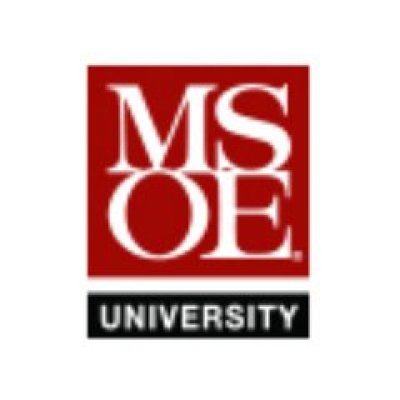Brian Faulkner, Ph.D.
Associate Professor Milwaukee School of Engineering

Milwaukee School of Engineering
View more experts managed by Milwaukee School of Engineering
Education, Licensure and Certification
Ph.D.
Electrical and Computer Engineering
University of Illinois Urbana-Champaign
2018
M.S.
Electrical and Computer Engineering
University of Illinois Urbana-Champaign
2015
B.S.
Physics and Mathematics
University of Idaho
2010
Biography
Affiliations
- American Society for Engineering Education: Mathematics Division: Secretary/Treasurer
Selected Publications
When am I ever going to use this? An Investigation of the Calculus Content of Core Engineering Courses
Journal of Engineering EducationFaulkner, B., Johnson-Glauch, N., Choi, D.S., Herman, G. L.
2020
Many engineering students fail to proceed through required prerequisite mathematics courses. Since these courses strongly influence engineering student attrition, we should examine to what degree these courses truly serve as prerequisites for following engineering coursework. We examined two research questions: Which concepts and skills learned in calculus are applied in engineering statics and circuits homework assignments? How are calculus skills applied in engineering statics and circuits homework assignments?
Mathematical Maturity for Engineering Students
International Journal of Research in Undergraduate Mathematics EducationFaulkner, B., Earl, K. and Herman, G.
2019
Facing increased pressure to improve retention and graduation rates, engineering departments are increasingly scrutinizing whether they are getting their desired outcomes from core mathematics coursework. Since mathematics courses are a significant source of attrition and many engineering faculty are unhappy with students’ mathematical abilities, more engineering departments are increasingly looking at drastic options of taking students out of mathematics courses and teaching students mathematics themselves. To mitigate this trend, it may be valuable to better understand what engineering faculty hope students learn from their mathematics coursework. When engineering faculty explain why they require these high-failure prerequisites, many claim that “mathematical maturity”, not calculus skill, is the desired outcome of completing the core math sequence of courses. To better understand what engineering faculty mean by “mathematical maturity”, we conducted a qualitative thematic analysis of how 27 engineering faculty members define “mathematical maturity”. We found that these engineering faculty believed that the mathematically mature student would have strong mathematical modeling skills supported by the ability to extract meaning from symbols and the ability to use computational tools as needed. Faculty frequently lamented that students had underdeveloped epistemic beliefs that undermined their modeling skills, thinking that mathematics is unrelated to the real world and has little practical value. They attributed these dysfunctional epistemic beliefs to their perception that mathematics is too often taught without genuine physical context and realistic examples. We suggest potential avenues for reform that will allow mathematics departments to better serve their client departments in engineering and thus retain control of their courses.
Understanding Bernoulli's Principle Through Simulations
American Journal of PhysicsFaulkner, B.E. and Ytreberg, F.M.
2011
Computer simulations are used to develop a deeper understanding of Bernoulli’s principle. Hard disks undergoing elastic collisions are injected into a Venturi nozzle and the pressure in the narrow throat of the nozzle is compared to the pressure in the wider section of the pipe. This model system is an ideal student project because the theory and programming are straightforward, and the computational cost is low.
Engineering Faculty Perspectives on Student Mathematical Maturity
ASEE Annual Conference and ExpositionFaulkner, B.E., Herman, G.L., Earl, K.
2017
Mathematics coursework causes significant engineering student attrition. Many students drop out of engineering before even taking their first engineering course due to failing a prerequisite mathematics course. If the mathematics prerequisites fail so many engineering students, it is prudent to understand what exactly those students ought to be gaining by taking these courses. When asked what their students gain from the math course sequence, many engineering faculty members respond that it is not technical mastery, but “mathematical maturity” that matters. We conducted a qualitative thematic analysis of 27 interviews with engineering faculty members from 11 disciplines who taught engineering courses that list part of the core engineering mathematics sequence as a direct prerequisite. We examine which mathematical skills, habits, and attitudes constitute “mathematical maturity” for engineering students according to these engineering faculty members. We constructed an initial coding scheme from literature on mathematical epistemology, mathematical competencies, and symbol sense, with additional codes allowed to emerge during coding by two researchers.
Where Does the Calculus Go? A Follow Up Investigation of How Calculus Ideas Are Used in Core Engineering Coursework
IEEE Frontiers in Education ConferenceFaulkner, B., Herman, G.
2017
Mathematics courses are a major source of engineering student attrition. Many engineering students drop out before even taking an engineering course. While the mismatch between mathematics content and following engineering coursework is already a concern, it is often studied heuristically by talking to engineering faculty. Few rigorous studies empirically document when students actually need to use calculus knowledge in their coursework. We mapped how foundational calculus concepts are used to solve assigned problems in topics covered in the widely required Engineering Statics course. To create this mapping, we used the mathematics-in-use technique of Czocher et al. We present preliminary evidence of the match, or mismatch, between what calculus is taught and learned in mathematics courses and what is expected of students in following engineering coursework. For this work-in-progress, we focused on presenting the alignment between calculus concepts/skills and topics taught in Statics.

